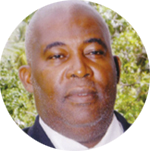
THERE is no doubt, that the friendship between the government and people of Taiwan and the government and people of St. Lucia is bearing much ‘fruit’. And we must complement the Taiwanese Ambassador, Peter Chen, and members of his Taiwanese team for ‘germinating and rearing’ the friendship to the extent that St. Lucia is presently experiencing a beacon of light and hope.
In November 2018, the Taiwanese government commenced a project on “The Application of Information and Communication Technology for Education Development in St. Lucia. The main idea was to implement the planning and development of digital education in both Primary and Secondary schools, after the government of St. Lucia had requested a cooperation project in applying Information and Communication Technology (ICT), to improve the quality of digital education which had been developed in the Republic of China (Taiwan).
Indeed, all our children in schools in St. Lucia will benefit immensely from the Information Communication Technology (ICT) programme in education.
But how exactly would our children benefit in the programme? Teacher and pupil or student communication will be greatly improved; Computers in schools provide wider access to ICT and encourages new ways of learning; Students would be able to go over or repeat their work as often as they wish; there are special facilities for students with disabilities; there is also the use of packages such as word-processing, spreadsheets; simplified information sharing; increased student motivation and improve IT literacy of students, among others.
ICT in schools could, no doubt, also enhance some learning strategies already discussed in my articles “How students learn” in my articles on education.
One strategy that comes to mind immediately, is the small group-large group formation which could be utilized regularly.
ICT in education could manifest itself in all subjects in the school curriculum, such as: Mathematics, Language Arts, Religious or Moral Education, Health Science, General Science, Social Studies, Fine Arts, Agricultural Science and Technologies.
The beauty of ICT is that the technology could prepare our students for greater exposure to vocational training and workforce skills.
Now what are some of the achievements of the Taiwanese Mission in St. Lucia?
In 2019, there was a workshop which focussed on online security issues which included topics of online privacy, digital identity and footprint, online intellectual property rights, and cyber security. Seventy-eight participants attended that workshop.
In 2020, ten workshop sessions were held which focussed on the online education platform for the Entrepot Secondary school, workshop with Professor Lan of the University of North Texas about online multi-media teaching technique and E-Learning Academy workshop. Four hundred and twenty-nine participants attended the workshops.
In 2021 there were 19 workshops which covered Rodocodo application, Book Creator Application and Multi-media education.
Now what exactly is Rodocodo? Rodocodo is a coding game that enable teachers to deliver fun and engaging lessons without knowing anything about coding. Similarly, the Rodocodo application will make teaching code very easy for children or students.
Five hundred and sixty-eight participants attended the workshop sessions.
In 2022, there were eight workshop sessions in learning analytics in education, BNTQ interactive screen application, and very critical for our schools, Smart Classroom Application.
But what exactly is analytics in education? In analytics the focus is on reporting, modelling, analysis and decision support function.
Indeed, such an application would lead students to critical thinking which I have spoken about several times in my articles on education.
Now what is the BNTQ interactive application? This is an application being widely used in Taiwan. It is a way of several possible variations, in which a set of numbers are unscrambled and new words are made. This is an ideal application to help students build their vocabularies. And the four vocabularies are: Reading, writing, listening and speaking.
Some 38 sessions were held and 1,216 participants attended those workshops.
The pioneering schools in these Taiwanese pilot programmes were Sir Ira Simmons Secondary, Patricia D. James Secondary, Entrepot Secondary, Soufriere Comprehensive Secondary, Camille Henry Memorial Primary School, Gordon & Walcott Memorial Methodist Primary School, and Plain View Combined.
Now the Pilot Classrooms were at the Leon Hess Comprehensive Secondary School, Babonneau Secondary, Grand Riviere Secondary, Micoud Secondary, Laborie Boys’ Primary and Canaries Primary.
And then, there were the Recording Smart Classrooms on Economics. The schools which participated in those Smart Classrooms were St. Joseph Convent Secondary, and the Vieux Fort Comprehensive Secondary.
Indeed, we have just begun to scratch the surface. There is much more information to be provided on the work of the Taiwanese Mission in St. Lucia.
I predict, in just a few years, our education system will be a force to be reckoned with, as it relates to the quality of student output. Thanks to the government and people of Taiwan.
To be continued…












